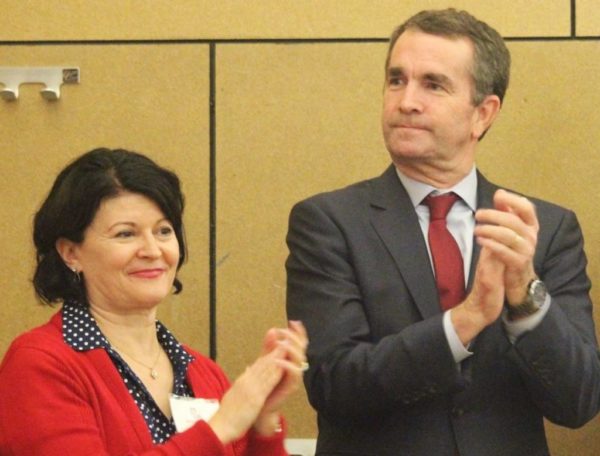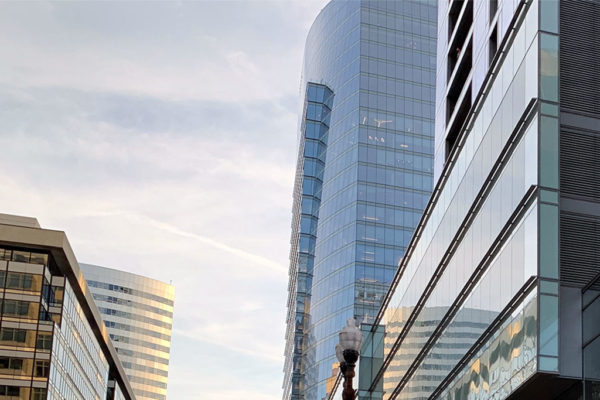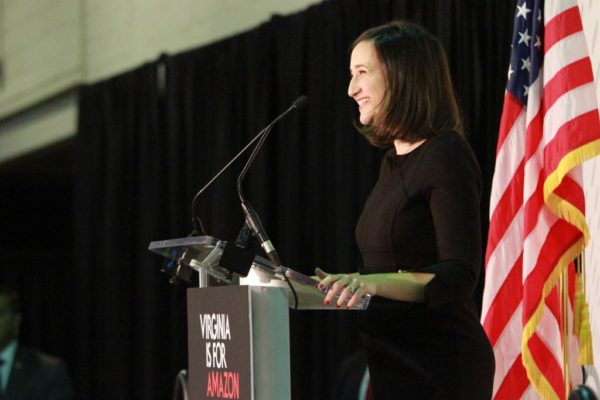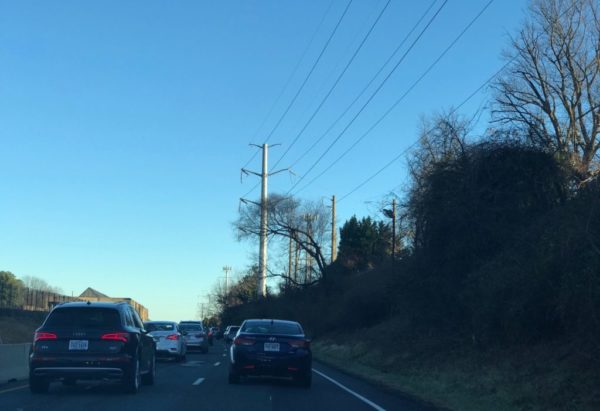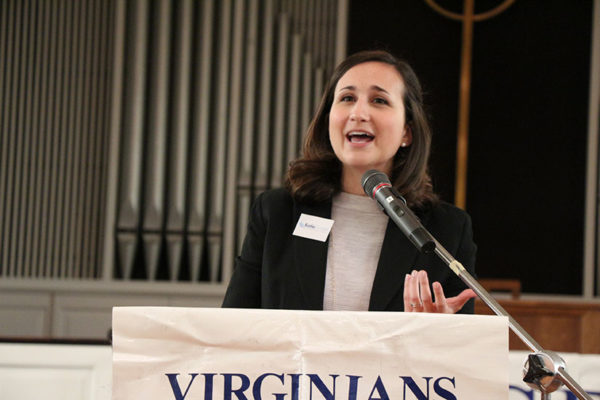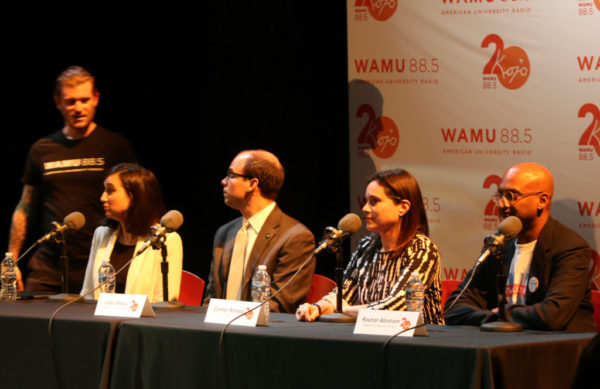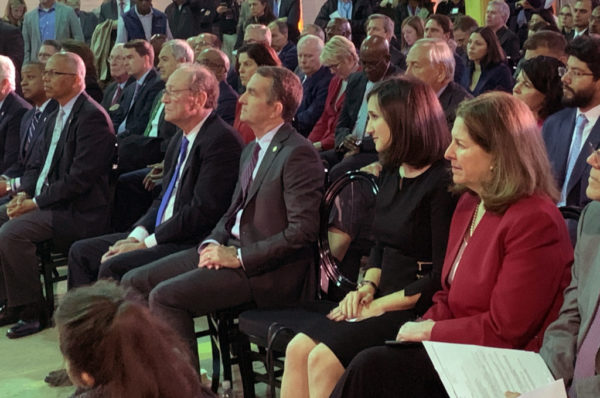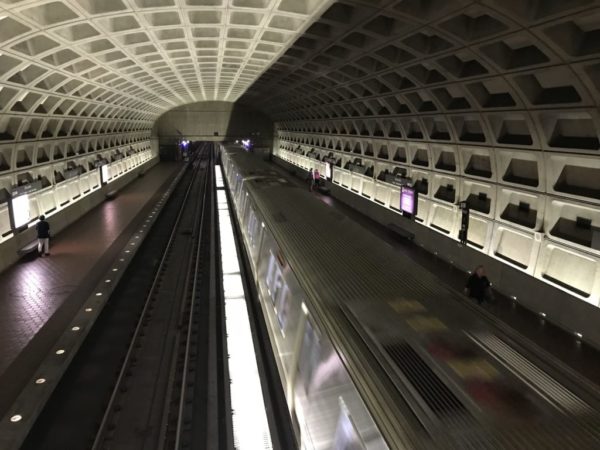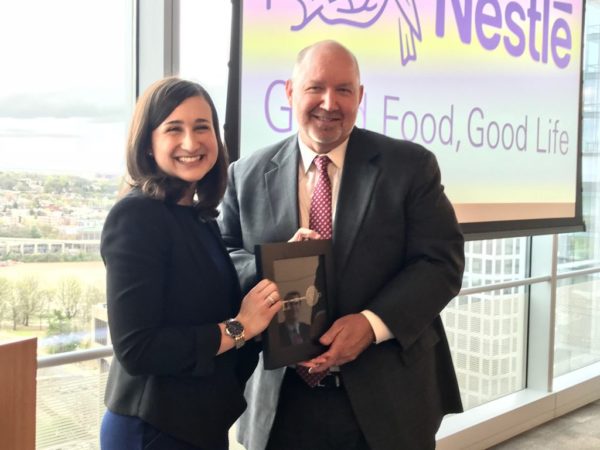(Updated at 10:45 p.m.) About a year ago at this time, Arlington looked to be in serious trouble down in Richmond.
In mid-March 2018, county officials faced the decidedly unpleasant prospect that they’d come out on the losing end of a bruising legislative battle with two local golf and country clubs.
One of the county’s foremost foes in the General Assembly had engineered the passage of legislation to slash the clubs’ tax bills, potentially pulling more than a million dollars in annual tax revenue out of the county’s coffers.
Arlington had spent years tangling with the clubs, which count among their members local luminaries ranging from retired generals to former presidents, arguing over how to tax those properties. Yet the legislation from Del. Tim Hugo (R-40th District) would’ve bypassed the local dispute entirely, and it was headed to Gov. Ralph Northam’s desk.
That meant that Arlington’s only hope of stopping the bill was convincing the governor to strike it down with his veto pen.
In those days, long before evidence of Northam’s racist medical school yearbook photos had surfaced, the Democrat was well-liked in the county. He’d raised plenty of cash from Arlingtonians in his successful campaign just a year before, and had won endorsements in his primary contest from many of the county’s elected officials.
Yet the situation still looked dire enough that the County Board felt compelled to take more drastic steps to win Northam to their side. The county shelled out $22,500 to hire a well-connected lobbying firm for just a few weeks, embarking on a frenetic campaign to pressure the governor and state lawmakers and launch a media blitz to broadcast the county’s position in both local and national outlets.
“It became apparent to all of us that every Arlingtonian had something at stake here,” then-County Board Chair Katie Cristol told ARLnow. “At a time when we were making excruciating decisions about our own budget, the idea that you would take more than million dollars and put it toward something that wasn’t a priority for anyone here was so frustrating.”
That push was ultimately successful — Northam vetoed the bill last April, and the county struck a deal with the clubs to end this fight a few weeks later.
An ARLnow investigation of the events of those crucial weeks in spring 2018 sheds a bit more light on how the county won that veto, and how business is conducted down in the state capitol. This account is based both on interviews with many people close to the debate and a trove of emails and documents released via a public records request (and published now in the spirit of “National Sunshine Week,” a nationwide initiative designed to highlight the value of freedom of information laws).
Crucially, ARLnow’s research shows that the process was anything but smooth sailing for the county, as it pit Arlington directly against the club’s members. Many of them exercise plenty of political influence across the region and the state, and documents show they were able to lean heavily on Northam himself.
“One would expect a Democratic governor to be highly responsive to one of most Democratic jurisdictions in the state,” said Stephen Farnsworth, a professor of political science at the University of Mary Washington in Fredericksburg. “But this was a matter of great concern to a bunch of very important people in Virginia, and that may well be the reason why additional efforts were necessary.”
And, looking forward, the bitter fight over the issue could well have big implications should similar legislation ever resurface in Richmond.
“Structurally, this bill could absolutely come back someday,” Cristol said. “And the idea that a bill that has such deleterious consequences for land use and taxation in jurisdictions across Virginia could come back and garner support because of an effective lobbying interest is very much a real threat.”


